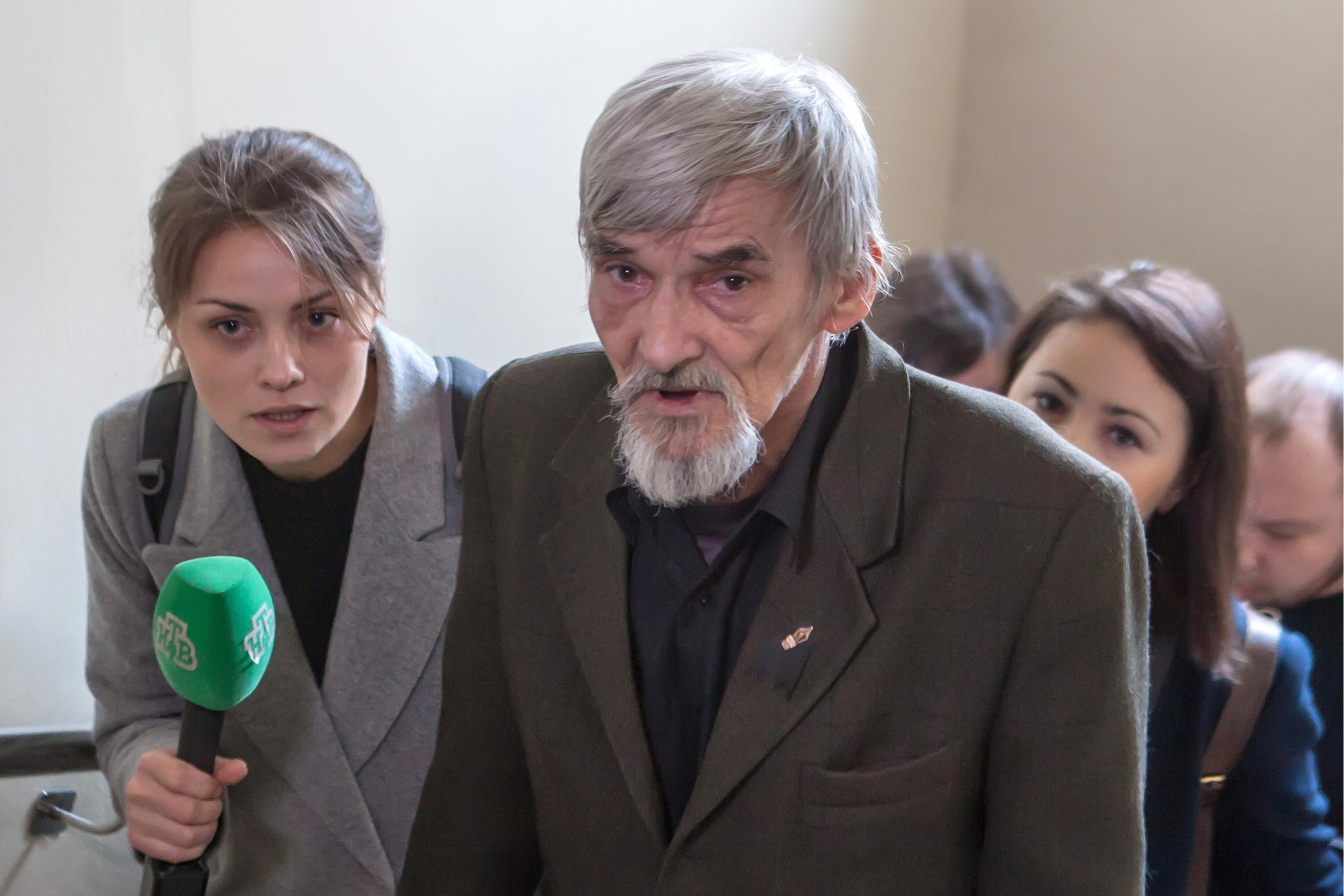The sentencing of historian Yury Dmitriyev reflects a new hesitancy in the way Russia doles out justice
In Russia, justice starts with a phone call. But with increasingly unconfident verdicts, the machine isn’t working quite how it used to, says Oliver Carroll


On Wednesday, a Russian court sentenced gulag historian Yury Dmitriyev to three-and-a-half years in jail for disputed child sex offences.
The case has attracted much attention – not only for the wildness of the charges but also their convenience. As the man who documented thousands of Stalin’s victims in his native Karelia, Mr Dmitriyev’s life work has put him in direct conflict with the security state.
This was the state’s second attempt to put the amateur historian behind bars. Two years ago, prosecutors also charged him with child sex offences against his adopted daughter. Remarkably, a local judge found him innocent.
The state reopened the case weeks later, and cancelled the judge’s already agreed promotion.
This time around, no one expected a repeated “mistake”. In that context, the fact the sentence was considerably shorter than the 15 years tariff requested – and that three charges were rejected outright – could almost be interpreted as a victory. Given the time Mr Dmitriyev has already served in pre-trial detention, he could be free as early as autumn.
It was certainly not a confident verdict delivered against a man supposedly guilty of sex crimes. Instead, it seemed to reflect a new hesitancy in the way the state doles out its justice.
According to Russian law, courts are independent and protected from outside interference. The reality is somewhat different: one of criminal cases bought on order, pre-determined verdicts, and a system locals euphemistically refer to as “telephoned justice”.
It’s a system that is hardly new, with roots in Soviet legal nihilism. But things definitely took a turn for the worse under Putin, with the 2003 trial against Mikhail Khodorkovsky considered a major watershed.
In the years that followed, Russia’s justice machine was fine-tuned. Independent judges were forced out, replaced by under-qualified functionaries. The new judges became increasingly dependent on perks and salaries, and the requests of local court chairmen, direct appointees of the president.
As a result, the courts became a factory of guilty verdicts, with an acquittal rate hovering around 0.1 per cent.
Over the last year, however, something seems to have broken. The verdicts – or at least the tariffs – have become much more unpredictable, possibly indicating more disagreement behind the scenes.
The investigative machine is certainly working as manically as ever. Cases are being brought against a wider and wider range of players: journalists, activists, actors.
But courts are increasingly surprising us with their low sentences (the case with Yury Dmitriyev), suspended sentences (director Kirill Serebrennikov, journalist Svetlana Prokopyeva, activist Yegor Zhukov), or even overturning sentences altogether (eg actor Pavel Ustinov in September last year).
In all cases, the Kremlin appears to be responding to strength of public opinion. Where there hasn’t been protest, courts have stayed close to the prosecutors’ original requests.
On one level, it seems sensible to avoid unnecessary conflict. On another, the regime seems to be setting up a new conflict – with itself.
Erratic, forced leniency is arguably not the best look for an authoritarian government that wants to show it’s in control.
Yours,
Moscow correspondent
Oliver Carroll
Join our commenting forum
Join thought-provoking conversations, follow other Independent readers and see their replies
Comments